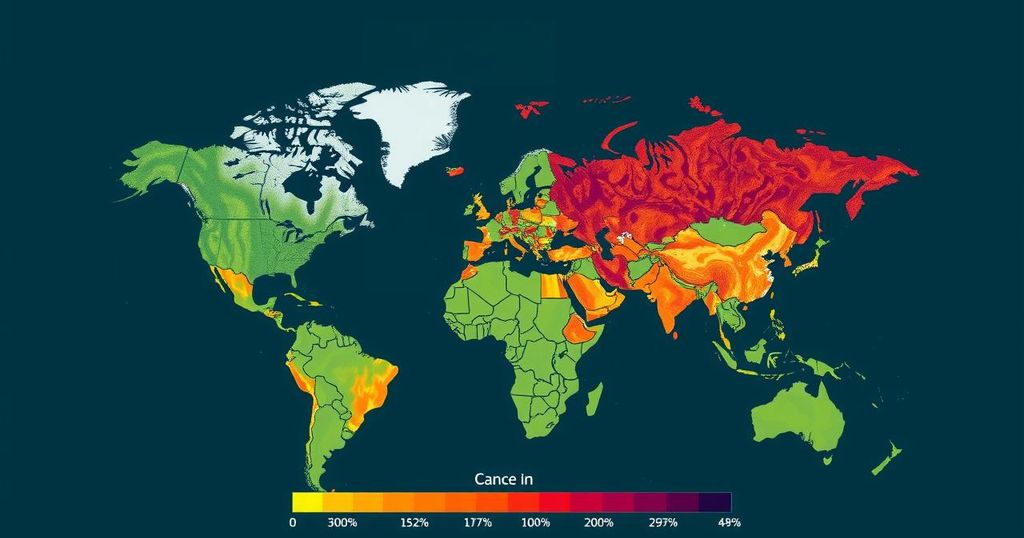The Impact of Climate Change on Voter Behavior: Insights from Research

Research by Lawrence Hamilton reveals that climate change, despite its evident impacts like wildfires and hurricanes, does not significantly influence voter decision-making. Misinformation and identity politics are key factors in this phenomenon, with younger individuals showing greater concern over climate issues than their older counterparts, potentially altering future electoral outcomes.
Climate change is significantly impacting weather patterns across the United States, leading to larger wildfires in the West, more powerful hurricanes in the South, and rising temperatures nationwide. However, the extent to which candidates can influence voters regarding climate change remains uncertain. Lawrence Hamilton, a researcher at the University of New Hampshire, has investigated public attitudes toward climate change for over a decade. Despite a rise in climate change awareness over the years, Hamilton notes that this awareness stagnated following the COVID-19 pandemic, largely due to a surge in misinformation related to government and scientific narratives. The propagation of misinformation serves as a key factor in diminishing the influence of extreme weather events on electoral outcomes. For instance, hurricanes such as Helene and Milton, along with the Davis Fire in northern Nevada, exemplify recent climate-related disasters that have not significantly swayed public opinion during election cycles. Furthermore, Hamilton articulates that voting behavior is increasingly linked to personal identity, making it difficult for voters to separate their beliefs regarding climate change from their deeper sense of self. This trend is particularly pronounced among individuals aged thirty and older. Conversely, younger voters demonstrate a greater propensity to attribute climate change to human activities and express alarm over the escalating frequency of climate-related disasters. Consequently, it is plausible that climate change may play a more substantial role in shaping electoral outcomes in future elections, especially in regions such as the Mountain West. The implications of these findings suggest a shifting landscape in political engagement concerning environmental issues as generational perspectives evolve.
The relationship between climate change and electoral politics is a complex and evolving topic. In recent years, researchers have observed a growth in public consciousness regarding climate change, particularly its tangible effects manifested in extreme weather events. However, the political ramifications of this heightened awareness appear tenuous, especially in light of increasing misinformation. Lawrence Hamilton’s research explores how identity plays a pivotal role in shaping voters’ sentiments about climate change and reflects broader trends in electoral behavior among different age demographics.
To summarize, while climate change is manifesting through more severe weather events, its effect on voter behavior remains limited. Misinformation and the intertwining of political beliefs with personal identity significantly hinder the electoral influence of climate change discussions. As newer generations increasingly acknowledge human responsibility for climate change, it remains to be seen how this shift may reshape political dynamics in upcoming elections, particularly in areas prone to climate-related challenges in the Mountain West.
Original Source: www.upr.org






